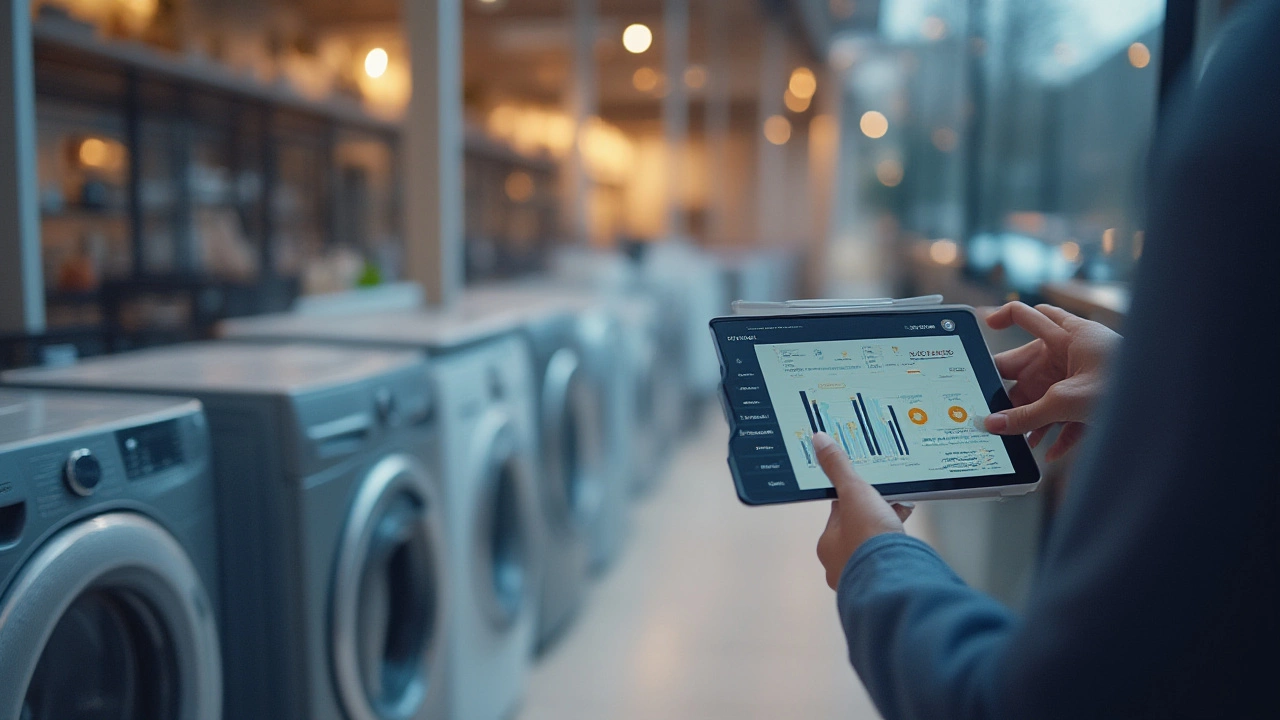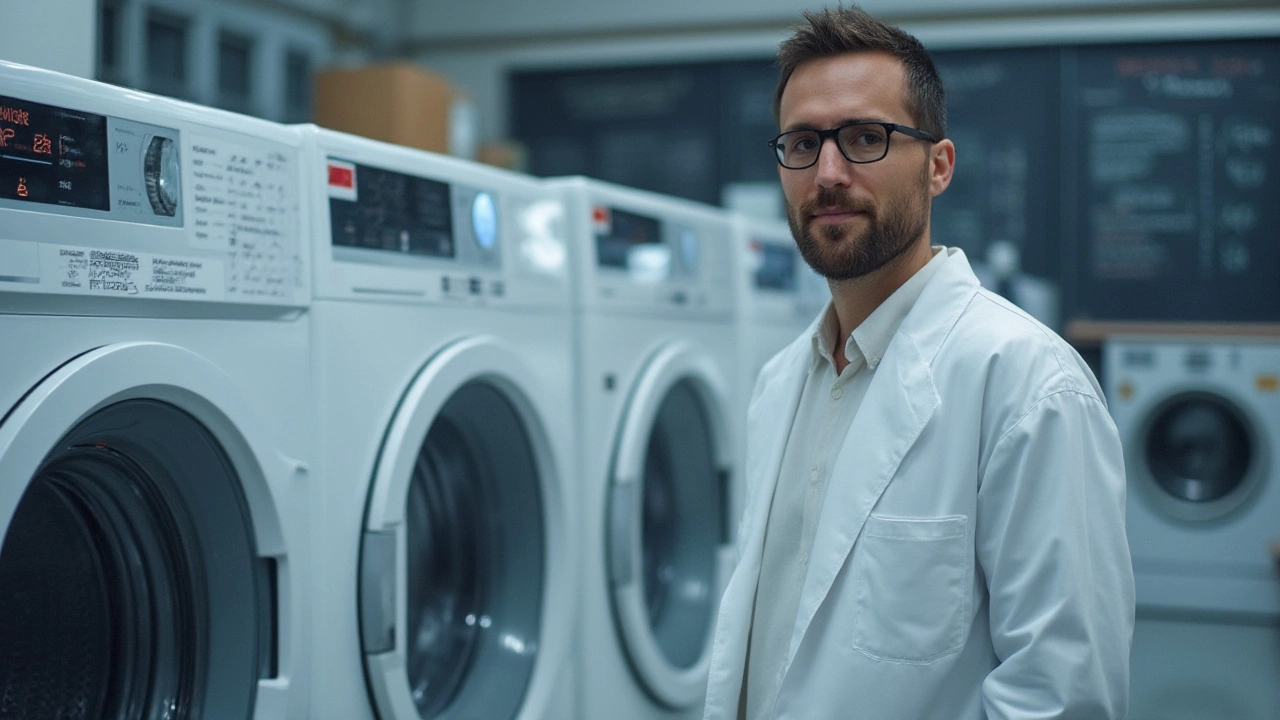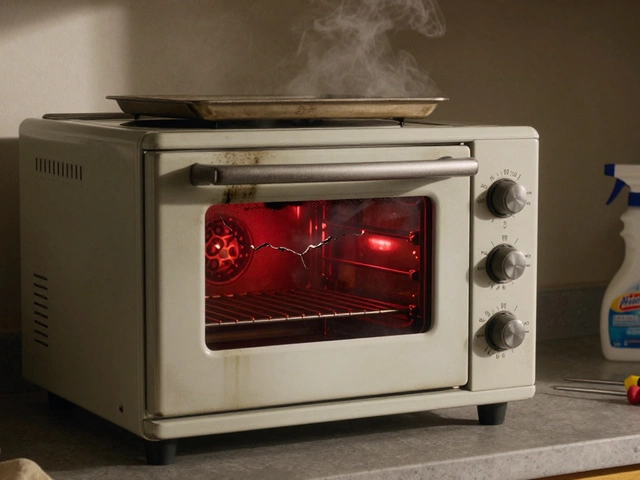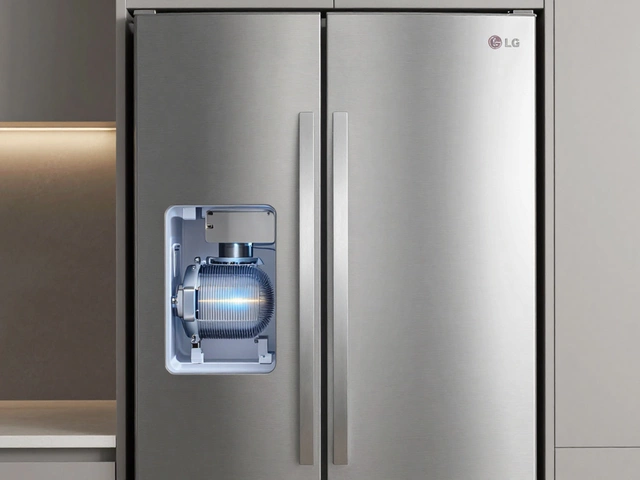You’re probably sick of shoddy appliances that quit halfway through their life span or chew up your favorite shirt. When it comes to washing machines, the brand actually matters, big time. Not all washers are built the same, and the gap between a budget big-box model and a high-end workhorse can be huge. The confusing part: every manufacturer claims their machine will give you sparkling clothes, last a decade, and eat less energy than a lightbulb. But if that was true, there’d be no need for repair shops, right?
What Actually Makes a Washing Machine Brand “The Best”?
Let’s clear this up: there’s no perfect washing machine. But not every washer is a headache waiting to happen. When people talk about the “best” brand, they’re not just hoping for clean socks—they want something that keeps running, doesn’t guzzle kilowatts, and isn’t impossible to fix.
Reliability comes first for most folks I’ve asked. Nobody wants to drop $800 and then shell out for parts two years later. This is where brands like Speed Queen built their legendary reputation—many laundromats swear by them, and you’ll find machines still churning after 20+ years. But Speed Queen is expensive, and hard to find in some countries.
Then there’s performance. LG and Samsung have made a name for themselves, not just for fancy features, but for actually washing the grime out. LG’s Direct Drive motors deserve a shout—fewer moving parts mean less noise, less vibration, and fewer repairs, usually. Their TurboWash cycles are surprisingly short but do a thorough job, which is great when you’ve got kids flinging muddy jerseys at you every week.
Don’t sleep on Bosch either. Europeans trust them for a reason: their washers get top marks for cleaning, especially in smaller spaces. The German engineering lives up to the hype—not flashy, but stubbornly consistent. If you’ve got a tight laundry room or energy costs are sky-high, Bosch’s compact machines punch above their weight.
On the flip side, several brands have built a reputation for headaches. Whirlpool, Maytag, and GE used to lead the pack, but lately, consumers report more repairs. That said, Whirlpool still makes some solid, no-frills top-loaders that seem to resist planned obsolescence.
Here’s the kicker: even the best machines will break if you overload them or never clean the filter. Sometimes the smartest move is getting a model with fewer bells and whistles. A complicated touchscreen looks great, but it’s another thing to go wrong. The simpler the machine, the easier (and cheaper) it is to fix.
Consider these factors whenever you buy:
- Reliability and expected lifespan (anything less than 7 years is sketchy)
- Warranty (at least one year, more if possible)
- Energy and water use (high-efficiency models aren’t always more reliable)
- Customer service and parts availability (good luck finding obscure circuit boards for a flashy, unknown brand)
- Noise and vibration (small apartments and second-floor laundries will appreciate silent machines)
Bottom line: “the best” brand isn’t just about a logo. It’s balancing what you actually need with what each company is good at.
Top Washing Machine Brands Rated by Real Owners and Experts
Word of mouth still beats any online review. Folks who work on washers, run laundromats, or have raised wild teenagers know what actually lasts. For 2025, these are the brands that keep showing up at the top—and why they deserve your attention.
Speed Queen is legendary for a reason. Their commercial pedigree means you get heavy-duty parts—their metal tubs don’t crack, and old-school mechanical controls rarely short out. Most techs will say these are built to be fixed, not tossed. Owners brag about going years without even thinking about repairs. Downsides? Their top-loaders don’t win points for water efficiency, and they’re pricier than your average big box store model.
LG is the crowd favorite in the world of front-loaders. Their direct-drive motors and inverter tech make them both reliable and quiet. LG’s customer service gets solid marks, repairs are usually straightforward, and replacement parts are easy to find. Washing cycles spice things up with steam, allergen, and speed options, plus remote diagnostics help you figure out problems without a tech visit (sometimes, anyway).
Bosch is the go-to for European-style washers. Super energy-efficient. Great for apartments, condos, or homes where you need something that fits under a counter. The cycles take a bit longer, but the results are stellar. Bosch stays quietly consistent year after year, though parts can get pricey if you ever need a repair.
Samsung deserves a look if you want features. They bring tech—Wi-Fi, massive capacities, fast cycles—without breaking the bank. People rave about the clean look and clever extras, like AddWash doors or smart load sensing. Just be careful: some models (especially earlier ones) had issues with vibration or electronics, but in the last few years, they’ve tightened up.
Whirlpool and its sibling Maytag aren’t what they were in their glory days, but their basic top-loaders still hold up. They’re easy to work on, cheap to repair, and widely available in North America. If you want a classic washer that’ll survive the apocalypse, pick the lowest-tech version with a dial, not a touch panel. Expect a good run for the money, especially from the basic Maytag models.
Brands like Miele and Electrolux deserve honorable mentions, too. Miele is expensive up front but famous for lasting practically forever (some people swear theirs are still going after 25 years). Electrolux has some clever laundry tech and is pretty reliable, but finding service in some areas can be a pain.
Sometimes, the best research is just asking appliance techs what they own at home. Most say Speed Queen, LG, or Bosch. These aren’t just names—they’re machines that have earned their reputation on the ground.

Front Load vs. Top Load: Does the Brand Matter?
The old top-loader vs front-loader debate still goes strong, and weirdly, some brands do one better than the other. Here’s how it shakes out:
Front-loaders win points for saving water and energy, and (big one here) doing a better job on stubborn stains. LG, Bosch, and Samsung front-loaders are staples because they don’t just look slick—they squeeze out every drop of dirt. Plus, front-loaders spin clothes drier, so shorter drying time is a win for your wallet.
But top-loaders fight back with simplicity. Whirlpool and Speed Queen make models that shrug off hard water, detergent build-up, and the abuse of college share houses. Top-loaders handle big loads and bulky stuff (duvets, big towels) without a fuss. And you won’t have to squat to get your laundry out—a big win for those with creaky knees.
One thing to know: a brand that’s great at top-loaders isn’t always the best for front-loaders, and vice versa. LG built its name on front-loaders. Speed Queen’s top-loaders are almost bomb-proof, but their front-loaders—while solid—don’t win the same devotion. Whirlpool holds its own for both, but their entry-level machines have fewer frills (which some people like, because there’s less to go wrong).
If mold or mildew freaks you out, front-loaders have a reputation for it—especially if you skip the routine wipe-down of the door seal. But some brands (like LG) now use antimicrobial materials and special rinse cycles to keep the funk at bay. Still, a quick towel-off after laundry day makes a world of difference.
If you’re short on space, check brands like Bosch or Electrolux for smaller, stackable machines. Some apartment dwellers swear these save the day when you’re stuck with a closet-sized laundry nook.
So yes, the brand does matter, but matching it to the style of washer you want (and the abuse you expect it to take) is the not-so-secret trick.
Energy Efficiency and Smart Features: Do Fancy Extras Really Help?
The green label is everywhere these days. Who doesn’t want to shrink bills and save the planet? But when it comes to washing machines, more features don’t always mean a better clean—or fewer headaches. Let’s break it down.
Almost every “name brand” washer now claims some type of energy saving. LG and Samsung lead the pack with smart inverter motors and load sensing that adapts cycles to your laundry pile. Bosch’s compact machines have had A+++ ratings in Europe for years. The truth is, a new washer will almost always beat your old 90s behemoth for energy and water savings, but there are trade-offs.
Energy-efficient machines use less water, which can leave clothes less rinsed if you overstuff the drum. If someone in your house has sensitive skin, pick a model with an “extra rinse” or “allergen” cycle. And always remember—those quick wash cycles are only for lightly soiled stuff. Toss in muddy jeans, and you’ll regret skipping the heavy-duty setting.
Smart features are growing fast. Want a notification when the load’s done? LG and Samsung will ping your phone. Curious if you left socks behind? Samsung’s AddWash has a mini-door for mid-cycle drop-ins. Some GE, LG, and Whirlpool models support Alexa or Google Home. Remote diagnostics and auto-dosing (where the machine adds just enough detergent) make life smoother but don’t expect these to fix every issue. Touchscreens and circuit boards can fail—sometimes all you really need is a reliable rinse.
Connectivity is great for busy households (or for those who always forget the laundry), but if your Wi-Fi is spotty or you hate digital bells and whistles, stick to classic models. Simplicity often wins for longevity.
A tip from professional repair technicians: high-efficiency, low-water machines work best with HE detergent. Overloading with soap or using regular brands is how “smell” problems start. And if you’ve got pets, make sure your washer’s lint filter is easy to access and clean.
Eco cycles are fantastic for small, lightly soiled loads, but don’t try to wash your work boots in them. Extra features can be worth it, just keep them in the “nice to have” column—not “must have.”

Tips for Choosing—and Maintaining—Your Washing Machine in 2025
Still feeling overwhelmed? Here’s a quick cheat sheet for picking a washer you won’t hate in six months.
- Start with space: Measure, twice. Height, width, and especially depth. Many new machines are deeper than you’d expect. Check door clearances for tight laundry closets.
- Decide on style: Front-loaders look sleek, save space, and clean well. Top-loaders handle heavy loads like a champ and are easier to reach.
- Match your brand to your needs: Big family with endless laundry? Go for a sturdy top-loader, maybe a Speed Queen. Small apartment? Bosch or LG compact front-loader fits the bill.
- Look at the warranty: A longer warranty can save headaches. Brands with solid reputations often back up their machines for at least two years now—sometimes up to five on the motor.
- Read real owner reviews: Not the polished website ones. Look at owner forums and social media groups—thumbs up for long-term, real-world stories.
Once your machine’s in, don’t forget the basics:
- Keep the door or lid open between loads (especially front-loaders) to let moisture escape.
- Wipe the door seal and detergent tray regularly to kill bad smells and breeding mold.
- Don’t overload with detergent—less is more with modern machines.
- Every six months, run a cleaning cycle with machine cleaner or white vinegar.
- If you hear something weird (grinding, banging, or water leaks), shut it down and check before making it worse.
If you ever need to call for repairs, brands like LG, Bosch, or Speed Queen tend to have the best support—and parts rarely take forever to arrive.
The truth? A great washing machine isn’t flashy—it just does its job, quietly and reliably, as part of your everyday life. Know your needs, trust proven brands, and give your new washer a little care now and then. Your future self (and your less-smelly clothes) will thank you for it.



